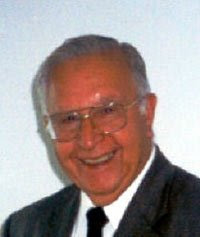Thursday, April 10, 2008
Untold Stories: Khaled Diab

Soon after Khaled Diab became a refugee in 1948, his life seemed so bleak that he thought it might not be worth living. Still, he considers himself one of the lucky ones. Diab was 21-years-old when he was driven from his home in the Palestinian village of Majd al-Krum by Zionist forces seeking to transform Palestine into a Jewish state. "I made it to the U.S. and went to school; I was able to make a life for myself. The people still in Gaza, the West Bank, in the refugee camps, they are the ones suffering the continuous Nakba, with Israeli military attacks and ongoing theft of their land for Jewish-only settlements."
Diab was teaching science, math and home economics in a school in the West Bank city of Nablus when he heard his home village was in danger and decided to return. "I remember everything. On the night of October 27, 1948, it became clear that the village would soon fall to the Israeli army. The people fled in fear of a massacre similar to the several others that happened in villages like Deir Yassin, where more than 100 men, women and children were murdered in cold blood by Israeli forces. All those who could walk across the Galilee Mountains to Lebanon did. But due to the birth of my sister one month before, my parents couldn't walk the distance to Lebanon, so they stayed." Diab took his 14-year-old sister and two other teenage relatives with him; they followed the mass of people walking to Lebanon. Only about 600 people remained, like his parents, in the village. "After more than 20 hours of walking in fear we arrived in Lebanon. We slept under trees with a blanket that was given to us." After a few days, they traveled in a baggage train sent by Syria to transport the refugees. "We thought we would be in Syria for a few weeks, only until we were allowed to return home. When I realized that was not to be, I started looking for work. I had a diploma from the best teachers college at that time in Jerusalem, and I was reduced to begging for a job."
Fate intervened one day that same year when Diab ran into the headmaster of his former school in Jerusalem. The man helped Diab secure a position with a school in northern Syria. "I was despondent. After what we had been through, and I had no money to feed my sister and relatives. The headmaster of the school called me in to speak with him. He gave me 200 pounds and told me to feed my family. That man saved my life that day. He told me not to thank him, but to help others. And I have tried to ever since."
Diab made his way to the U.S. in 1953. He earned a Ph.D. in electrical engineering from the University of Iowa and an MBA from the University of Buffalo, NY. He went on to enjoy a successful career: working for 18 years in the defense industry, then running his own company from 1976 until 1987 when he retired. He has 2 daughters and 2 grandchildren. "After I retired, I helped to establish the Arab Community Center in Orlando. I started the Olive Trees Foundation for Peace in 2003. We raised money to plant olive trees in Palestine and Israel. Olive trees are a symbol of peace, and only 25 mature trees can sustain an entire family. We have planted more than 40,000 trees so far." Israel has uprooted hundreds of thousands of mature olive trees.
Diab has a message of peace for his fellow Americans. "We have been given a negative label here in America. But I want people to know that we want peace. They may not know that we are the natives in that land, that we lost homes and entire towns and cities. In my case, I can count at least 10 generations in the same village. Yet here I am, dispossessed. Israel does not allow my return to my birthplace to live. I did nothing to deserve this. And the other Palestinian refugees did nothing to deserve their fate. Those who got a chance like me, excelled at what we did and contributed to our adopted countries. While we are thankful and love our adopted countries, we want to be able to do the same in our homeland."
The "Nakba" ("catastrophe" in Arabic) refers to the destruction of Palestinian society in 1948 and the exile of more than 700,000 Palestinians from their homes and homeland. It is estimated that more than 50 percent were driven out under direct military assault by Israeli troops. Others fled in panic as news spread of massacres in Palestinian villages like Deir Yassin and Tantura. Nearly half the Palestinian refugees had fled by May 14, 1948, when Israel declared its independence and the Arab states entered the fray. Israel depopulated more than 450 Palestinian towns and villages, destroying most while resettling the remainder with new Jewish immigrants without regard to Palestinian rights and desires to return to their homes. Israel still refuses to allow Palestinian refugees to return to their homes and to pay them compensation, as required by international law. Today, there are more than 4 million registered Palestinian refugees worldwide. The Nakba is a root cause of the ongoing conflict between Israel and the Palestinians. Israel's denial of its expulsion of the Palestinians and seizure of their homes and properties for Jewish use continues to inflict pain and to generate resistance among Palestinians today.






